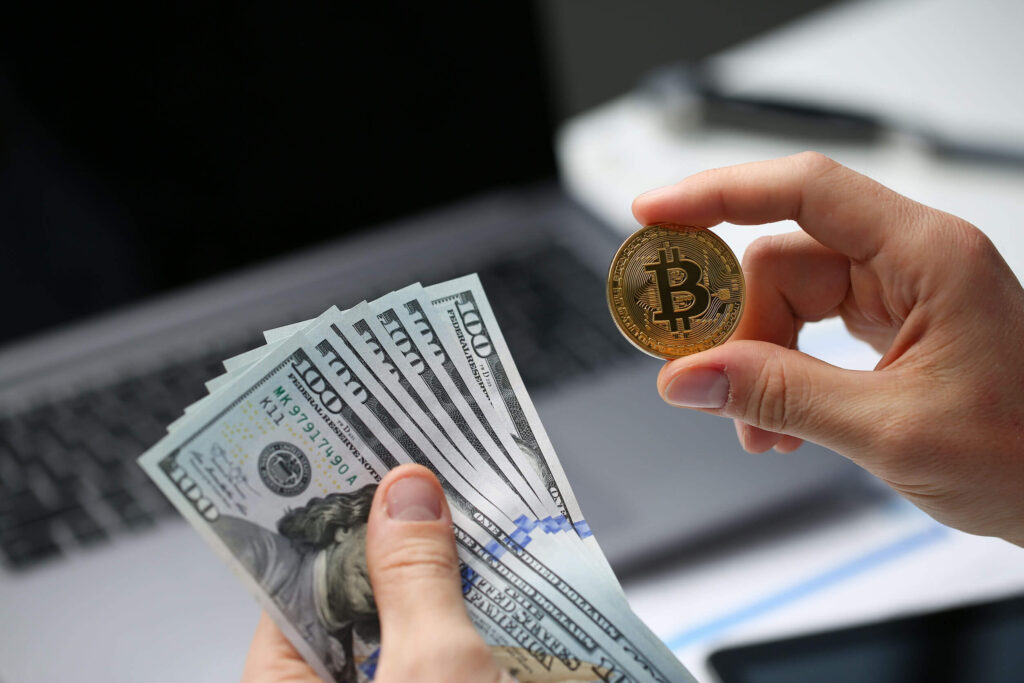What do you know about the companies like Visa and Paypal?
Adena Friedman once said that:
“You can’t be successful in business without taking risks. It’s really that simple”.
And I would agree with that statement for numerous reasons. Firstly, the quote “Speech is silver, but silence is gold” effectively works better in real life than in hard business. Secondly, the risk is not just the act of recklessness (though occasionally, it can be) or irresponsibility; it’s an action that requires, at first, time and focus.
So, that’s why when I started to see articles like “The cryptocurrency will replace fiat” or “The new technologies displace the business giants in competition”. I realized that people actually finally started to understand the economic and financial situation we have. Because that’s absolutely true. I believe 99% that crypto will replace fiat in the near future, but I’m not sure about the statement that the new technologies will fully displace the business giants in economic competition.
Of course, the conservative titans, the types of businesses that reject integrating new technologies such as AI, blockchain, and others will, eventually, be forgotten. And only AI could help find information about the once-famous corporations and companies.
The same story I recently read about Visa and PayPal. I wouldn’t say that it’s detailed, verified information, but it’s more like a prediction than a position or statement.
I strongly agree that the threat of the stablecoin exists. Stablecoins are being used increasingly for payments in addition to being entry points for cryptocurrency investments.
And the information that stablecoins would settle more than $11 trillion on the blockchain. This was much larger than PayPal’s processing volume and came very close to Visa’s $11.6 trillion volume.
According to a team at macro hedge fund Brevan Howard, a bank with 25 million accounts would be the fifth-largest in the US. Analysts at the firm reflected:
It is remarkable that in just a few years, a new global money movement rail can be compared with some of the world’s largest and most important payment systems.
In a case of Visa, I can make dozens of arguments why the company couldn’t be threatened by stablecoins and crypto at all.
Firstly, Visa partners with 60 crypto platforms to let consumers spend digital currency at 80 million merchants. Among them, Crypto.com, Coinbase, Binance and from the last partnerships, Visa and one of the biggest European crypto exchanges signed a memorandum of Understanding to cooperate across CEMEA region that includes Central and Eastern Europe, Middle East and Africa markets.
Actually, according to the official information of the exchange, the cooperation aims to support WhiteBIT in building sustainable relations with banks and fintech companies that are Visa partners and interested in crypto related products implementation.
And what conclusion can we make? The company is trying hard to hold on to new technologies and actively integrate them into its features.
To be successful in the modern world, businesses have to be closer to competitors and know everything about them.
In the case with PayPal, many people mistakenly believe that the lack of enthusiasm may stem from the notion that dollar-pegged stablecoins are more popular outside the United States. It’s true that stablecoin offers cheaper and faster transactions.
But the payment platform is still highly competitive. For example, at the beginning of August, numerous media outlets were full of headlines about global payments giant PayPal (PYPL) is entering the cryptocurrency market with its own U.S. dollar-pegged stablecoin, PayPal USD (PYUSD).
PayPal said the stablecoin will be available to an “already large and growing community of external developers, wallets and web3 applications,” and can be easily adopted by crypto exchanges.
PayPal paused work on its stablecoin project in February amid regulatory scrutiny, according to Bloomberg.
“The shift toward digital currencies requires a stable instrument that is both digitally native and easily connected to fiat currency like the U.S. dollar,” PayPal CEO Dan Schulman said in the statement. “Our commitment to responsible innovation and compliance, and our track record delivering new experiences to our customers, provides the foundation necessary to contribute to the growth of digital payments through PayPal USD.”
So, the company is also struggling to get the lead. And quite successfully. Because the leading crypto companies and startups in turn need strong partnerships with the verified business giants, which are not the first year on the market.


